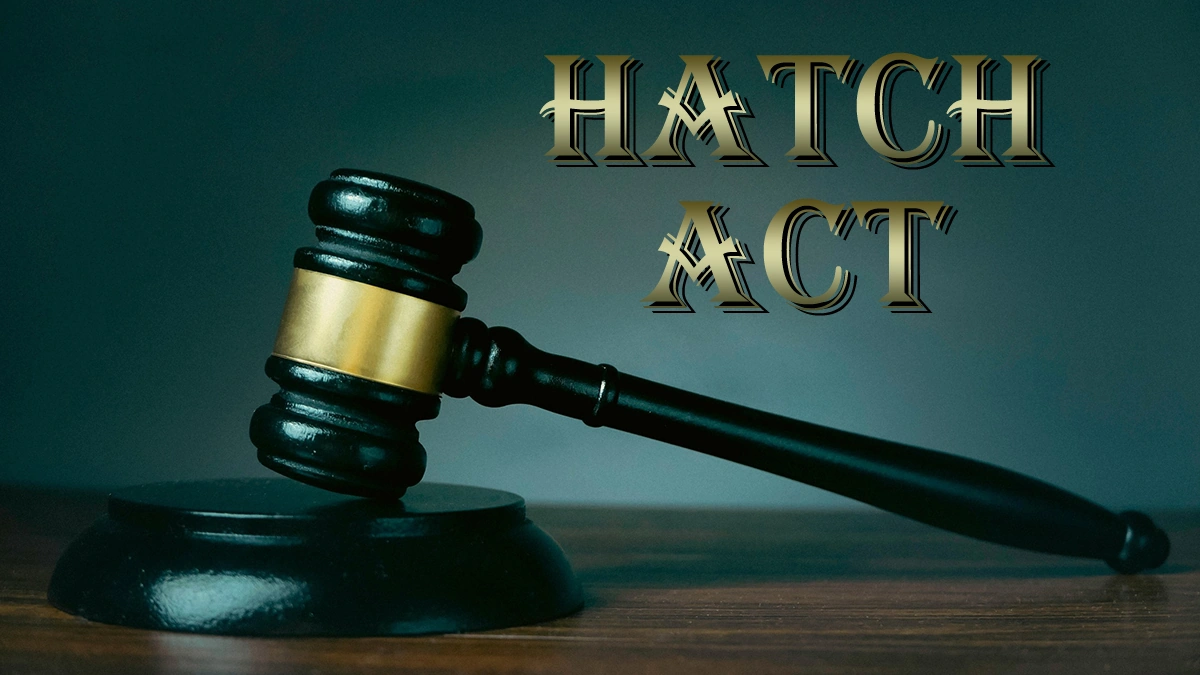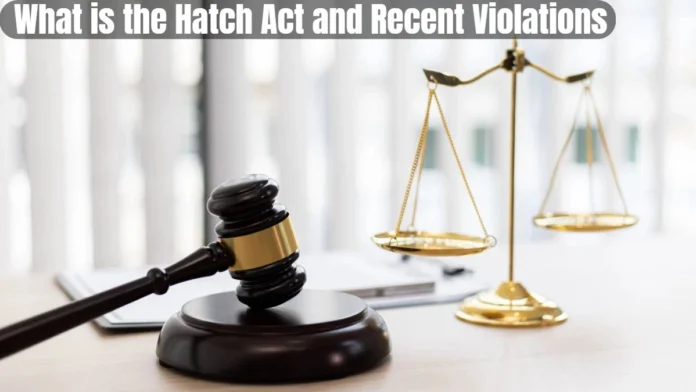Okay, let’s be real. The Hatch Act – it sounds like something out of a spy movie, right? But here’s the thing: if you’re a federal employee, or even work for a state or local government in certain federally funded roles, this act is way more relevant to your daily life than any James Bond flick. It’s not just some dusty old law; it’s a surprisingly nuanced set of rules that dictates what kind of political activity you can and can’t engage in. And honestly, navigating it can feel like walking through a minefield. That’s why I decided to write a comprehensive, easy-to-understand guide.
I remember when a colleague of mine got into hot water for simply retweeting a political message. A RETWEET! It made me realize how many misconceptions there are about this Act and how easy it is to accidentally step over the line.
Why the Hatch Act Matters (More Than You Think)

So, why should you even care? Well, ignorance is definitely not bliss when it comes to the Hatch Act . Violations can range from a slap on the wrist to termination of employment. Seriously. But beyond the potential consequences, understanding the spirit of the Hatch Act helps maintain a fair and impartial government. It ensures that federal resources aren’t used for political gain and that employees aren’t pressured to support specific candidates or parties.
Here’s what fascinates me: the Office of Special Counsel (OSC) handles Hatch Act enforcement, and their website is surprisingly informative. They offer advisory opinions, training materials, and even a hotline for employees with questions. It’s a testament to how seriously the government takes this issue.
The original intent behind this law, enacted in 1939, was to prevent the use of federal jobs for political coercion. Think about it: back then, political machines were powerful, and federal employees were often pressured to campaign for the ruling party. The Hatch Act was designed to level the playing field and protect employees from political pressure. While times have changed, the core principles remain remarkably relevant.
Navigating the Dos and Don’ts | A Practical Guide
Okay, let’s get down to brass tacks. What can you actually do, and what should you avoid like the plague? This is where things get a little tricky, but I’ll break it down.
What you CAN do:
- Vote (obviously!)
- Express your opinions about candidates and issues – just not while on duty or in an official capacity.
- Contribute money to political campaigns.
- Attend political events after work hours and not in your official capacity.
- Display political paraphernalia (like a bumper sticker) on your private vehicle.
What you CANNOT do:
- Engage in political activity while on duty, in a government office, or wearing a government uniform.
- Use your official authority or influence to affect the outcome of an election.
- Solicit or receive political contributions.
- Run for partisan office (in most cases).
- Display political paraphernalia in the workplace.
See? Nuances abound. A common mistake I see people make is thinking that social media is a free-for-all. It’s not. Your online activity can absolutely be subject to the Hatch Act if it blurs the lines between your personal and official roles. Be especially cautious about re-tweeting, liking, or sharing political content on accounts that identify you as a federal employee. Think before you click – seriously.
The Gray Areas | Where Things Get Murky
Let’s be honest, the Hatch Act isn’t always black and white. There are definitely gray areas, and that’s where things get complicated. What about attending a political rally on your day off? Perfectly fine. But what if you’re wearing a t-shirt that identifies your agency? Now you’re potentially violating the Act. The key is to always maintain a clear separation between your official duties and your political activities.
And what about federal employees who work in sensitive positions, like law enforcement or intelligence? They often face even stricter restrictions. For example, they may be prohibited from publicly endorsing political candidates, even in their personal capacity. It all boils down to avoiding any appearance of bias or impropriety.
According to the latest guidelines from the Merit Systems Protection Board , MSPB , employees found violating the Hatch Act can face penalties ranging from suspension to removal from their positions. These penalties can be career-ending, making it essential for individuals in covered positions to take the statute seriously and to proactively learn about their responsibilities.
The 2012 Amendments and Social Media | A Game Changer
The Hatch Act Modernization Act of 2012 brought some significant changes, particularly concerning social media. While it loosened some restrictions on political activity, it also made it clear that employees are responsible for ensuring their online behavior complies with the law.
Here’s the thing: social media has blurred the lines between personal and professional life. What you post on Facebook or Twitter can easily be construed as an official statement, especially if you identify yourself as a federal employee. And that’s where you can run into trouble.
The other day I came across an article discussing how the 2012 amendments have led to increased scrutiny of federal employees’ social media accounts. The lesson? Think before you post. And when in doubt, consult with your agency’s ethics officials.
Here’s a crucial point many people miss: even if you’re not actively campaigning for a candidate, expressing strong political views on social media while identifying as a federal employee can create the appearance of bias, which is a big no-no under the Hatch Act .
Staying Compliant | Tips and Resources
So, how can you make sure you’re staying on the right side of the law? Here are a few tips:
- Know the rules: Familiarize yourself with the Hatch Act and your agency’s specific policies.
- Separate your personal and professional lives: Be mindful of what you post on social media, especially if you identify as a federal employee.
- Avoid political activity while on duty: Don’t engage in campaigning, fundraising, or other political activities while you’re at work.
- Seek guidance: If you’re unsure about whether a particular activity is permissible, consult with your agency’s ethics officials.
Also, ensure you are aware of new laws and regulations , to stay in compliance.
What fascinates me is how many resources are actually available to help federal employees navigate these complex rules. The OSC website has fact sheets, advisory opinions, and even training videos. Take advantage of them! It’s better to be safe than sorry.
FAQ | Your Burning Hatch Act Questions Answered
Frequently Asked Questions
Can I wear a political t-shirt to work on Election Day?
No. Even on Election Day, displaying political paraphernalia in the workplace is generally prohibited.
What if I volunteer for a political campaign on my own time?
That’s generally permissible, as long as you’re not using your official authority or influence to affect the outcome of the election.
Can I donate to a political candidate?
Yes, you can contribute money to political campaigns.
What happens if I violate the Hatch Act?
Penalties can range from a warning to termination of employment, depending on the severity of the violation.
Where can I get more information about the Hatch Act?
The Office of Special Counsel (OSC) website is an excellent resource:osc.gov.
In conclusion, the Hatch Act , political activities, and federal employees’ conduct is more than just a set of rules; it’s a cornerstone of our democratic system. It protects against political coercion, promotes fairness, and ensures that government resources are used for the public good, not for partisan gain. Understanding its nuances is not just a legal obligation but a civic duty.

